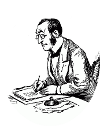Bruce Allardice Find Stories, October 2013
Property "Version" (as page type) with input value "{{{Version}}}" contains invalid characters or is incomplete and therefore can cause unexpected results during a query or annotation process.
Comments
<comments voting="Plus" />
“Sometimes we don’t realize how lucky we are to be alive today.” I know, I know, you hear that clichéd catchphrase and you conjure up an image of some old curmudgeon, stuck in the past.
But modern baseball historians ARE lucky. Lucky to have the internet, lucky to have search engines, lucky to have OCR capability, and above all lucky to have online, searchable historical newspapers.
With more than a thousand entries in Protoball’s PrePro data base, I can verify that without newspaper collections such as Genealogybank, Newspaper Archive, Chronicling America, 19th Century Newspapers, and Paper of Record, I never would have found a tenth of that material. The U. of Pennsylvania has a great website that lists online newspapers by state, and includes newspaper digitalization by libraries and historical societies.
What I like most is to glance at the Protoball map, pick out a blank area (one that doesn’t have an early team/game already entered), and set myself the task of filling that blank. Or maybe I just am familiar with a city (say, Murfreesboro, Tennessee, site of a Civil war battle) or country (I just visited Scotland) and have 15 minutes between classes to do a quick search.
For example, recently I tried to find early baseball in western Kansas, specifically, Dodge City, the cow town where “Wild Bill” Hickok and “Bat” Masterson were lawmen. I found mentions in the local newspaper of baseball as early as 1876. The game probably reached there a few years earlier, but the online newspapers only began in 1876, and the earlier newspapers for the rest of Kansas had no mention of any Dodge City game prior to this. Indirect evidence suggests that around 1875 Hall-of-Famer Charles Comiskey played baseball on a college team in Dodge. But since the year given for Comiskey’s play was vague, and the sources, newspaper articles many years after, I put this information in a footnote to the verified Dodge date.
It’s also satisfying to find an unusual name for a club. The best I’ve found so far is the name of a Hopkinsville, Kentucky team from the 1870s. The main team in Hopkinsville was the “Brown Stockings” (there are dozens of teams with that nickname) but this rival club named itself the “Sweet Gum Deadeners”! Sweet Gum trees abound in that part of Kentucky, but what the nickname refers to beats me. In Illinois I’ve found clubs named the Plowboys, Lively Turtles, Sticktights, Dirty Stockings, Nesthiders, and Red Hots.
My most gratifying find? A team organized in Matamoros, Mexico, in 1869, composed partly of American speaking settlers, partly of Mexican natives. That team was formed and playing 14 years earlier than historians had given for the first team in that country. Or Scotland, where I found mention of baseball teams in Dingwall, in the remote Highlands, in 1870, at least four years before games were played in London. It warms my Scots heart to think that the Scots beat the Southrons to the game.
The find I’d like most to follow up on? Probably the story of Dr. Caleb Guyer Kelly (d. 1960). A Methodist missionary, former Baltimore City College ballplayer, and friend of Ned Hanlon, Kelly organized baseball clubs all across northern Africa in the 1920s. Preaching both baseball and Protestantism to the area, Kelly boasted of forming 107 teams in Tunisia, Libya, Algeria, and Morocco in North Africa, and was known as “the father of North African Baseball.”
-- Bruce Allardice, October 2013
